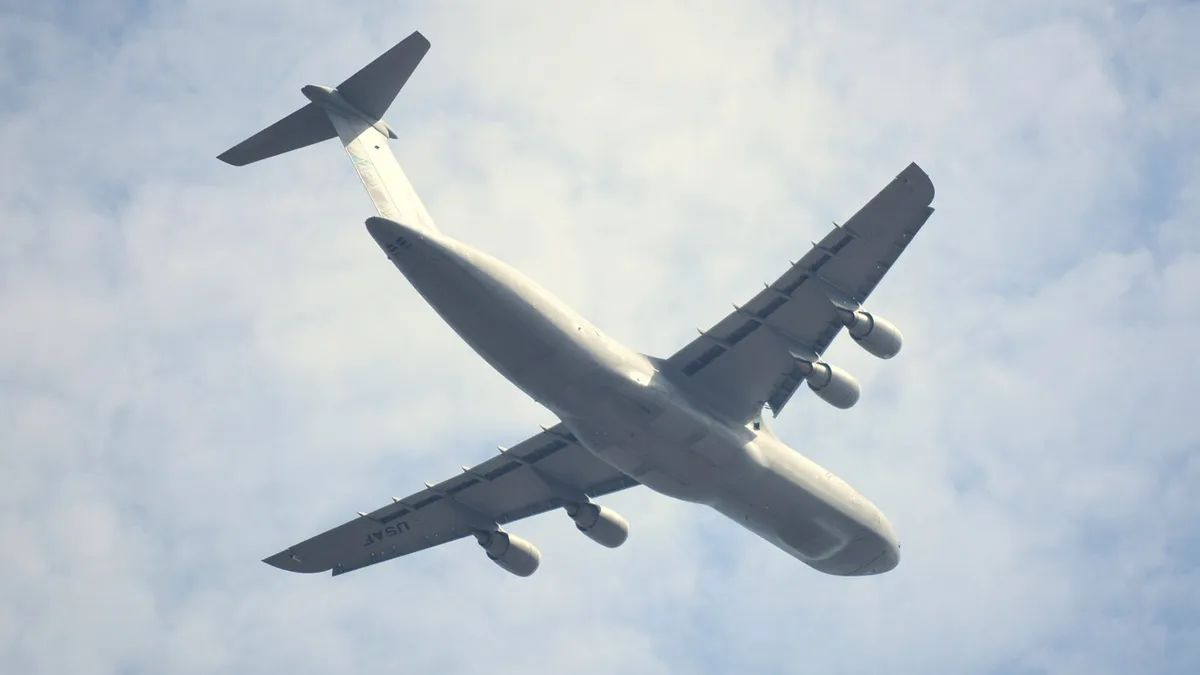Dive Brief:
- Digitization is urgently needed to update air freight cargo, as the continued use of physical documentation has created massive inefficiencies, The Loadstar reported Monday.
- Because so much of the air freight industry is now seen as a commodity, costs must be continually reduced.
- To operate most efficiently, both carriers and forwarders must move toward a digital standard, learn how to derive value from data, and adapt to updated modes of business efficiency.
Dive Insight:
The International Air Transport Association (IATA) is spearheading an initiative for air cargo transport to go paperless. The initiative aims to reduce processing cost and freight wait time, improve quality by establishing unified quality management standards, and add to sustainability by reducing the use of paper. Visibility will also be improved through electronic messaging for tracking status of freight.
At a minimum, the consolidation of forms and approval documents meant to ensure the safety and legality of air transport cargo will be a challenge for the industry, but with strategic focus and the help of the cloud, it can be accomplished.
Yet, consolidating paperwork is but one aspect of digitizing. Another, perhaps more challenging aspect is establishing a common language and digital translation process wherein various carriers' way of processing the data can be standardized and therefore used for industry-wide insights.
Investing in new data analytics will also be required if air cargo transport companies truly want to be more effective in reaching out to new markets. After all, collecting data is hardly useful if it is not being tracked and analyzed to spot inefficiencies.













